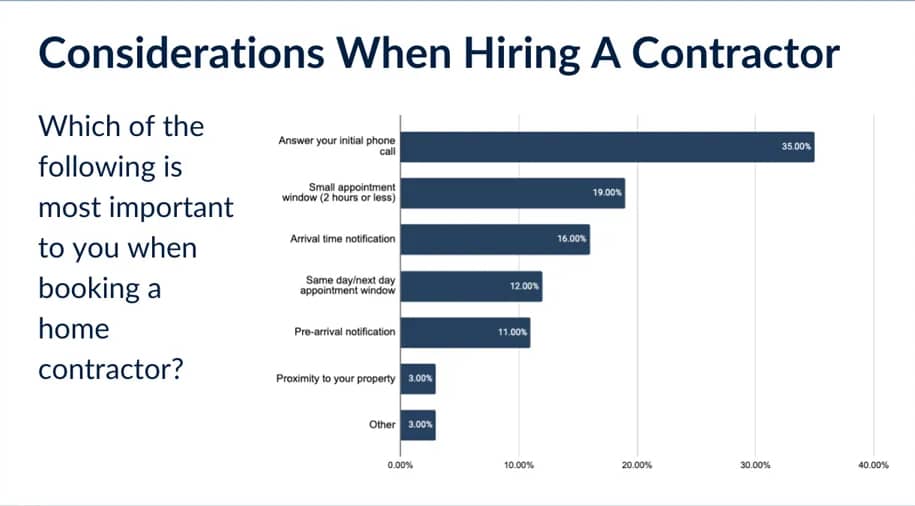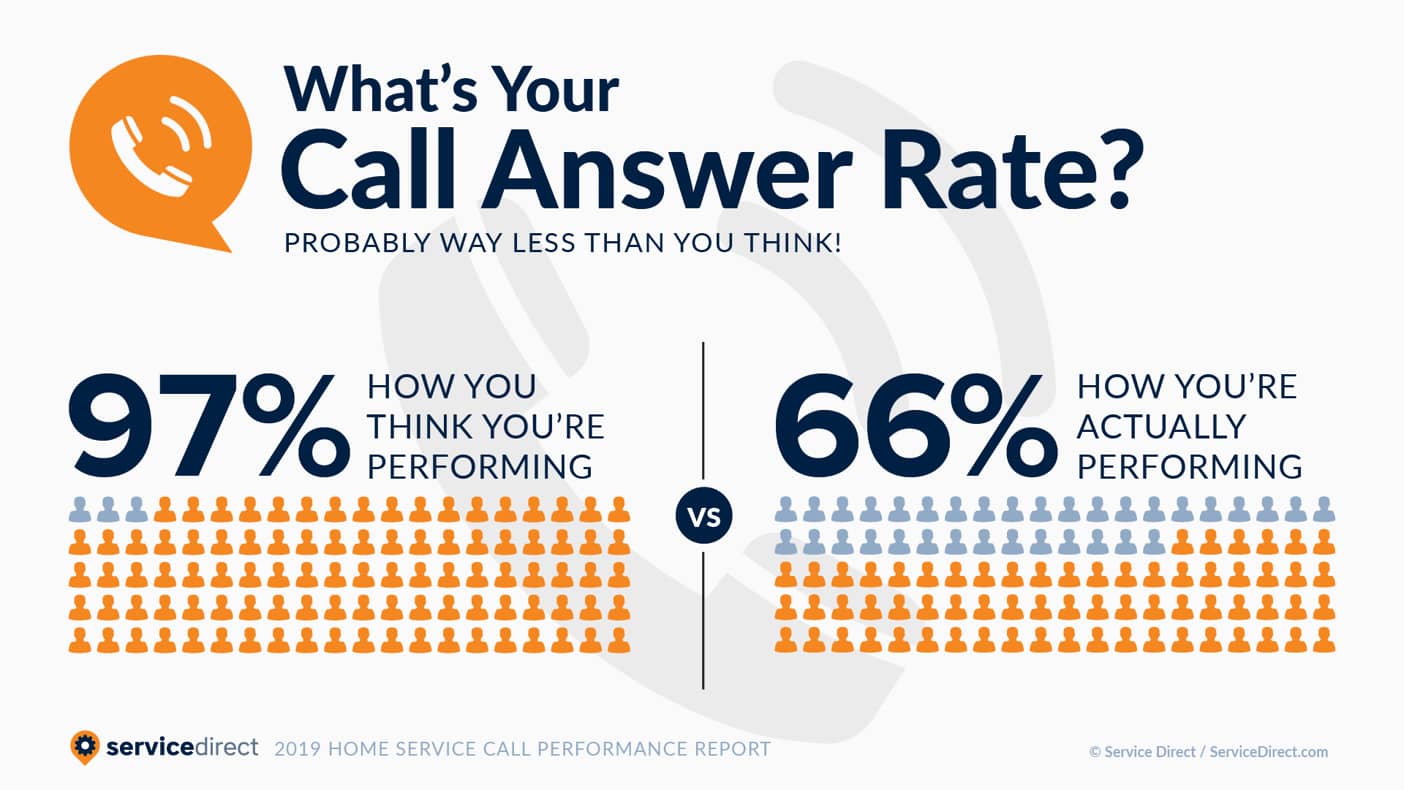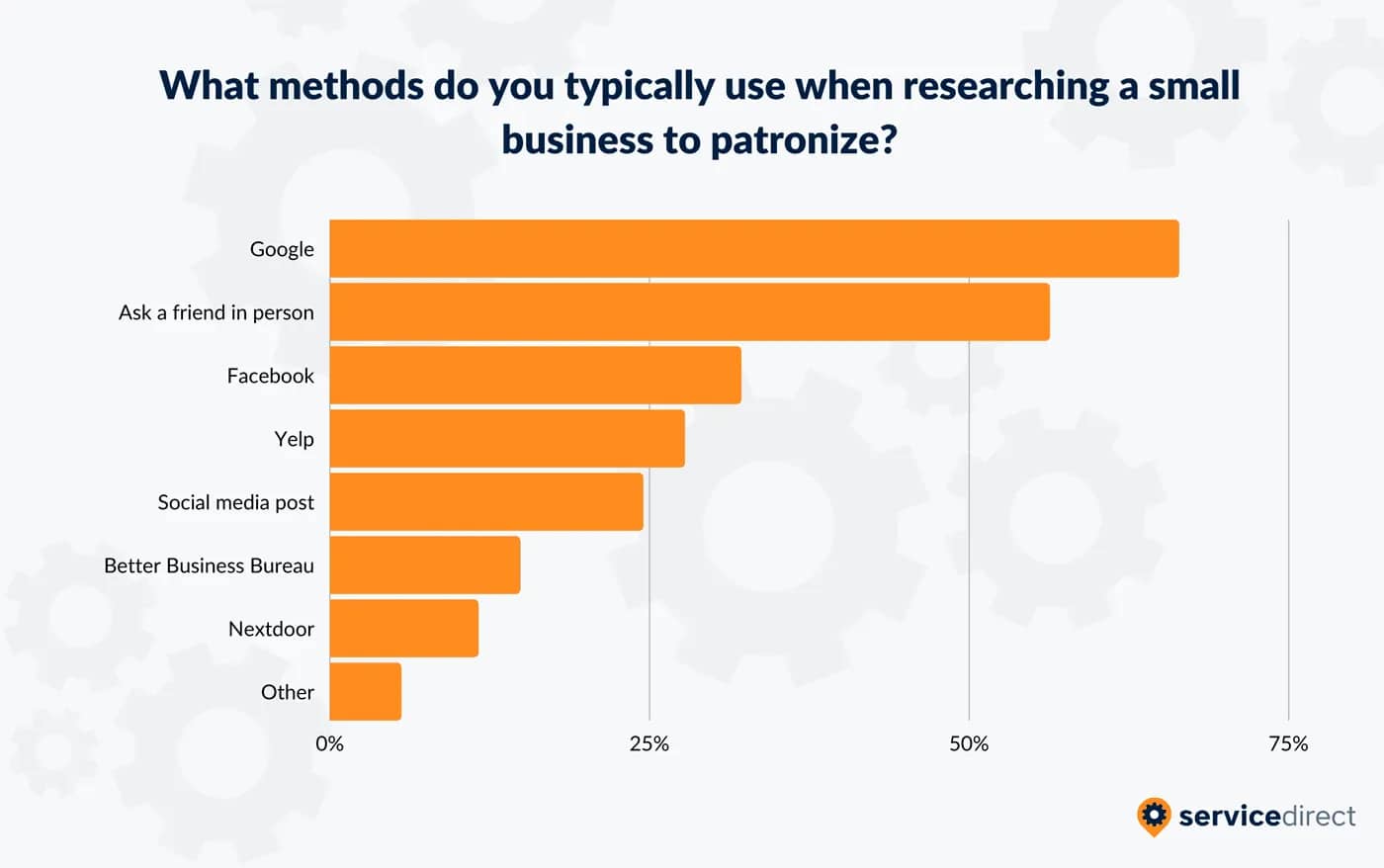Is Bad Phone Etiquette Costing You Business?
Updated on March 9, 2023
We’ve said it once, and we’ll say it again (and probably 100 times more): answering your phone is one of the most important skills to have when running a business.
It’s so important that it can make or break many small businesses, especially when 35% of homeowners report answering their initial phone call is the most important element when choosing a home contractor.

But as with most aspects of running a business, it’s not as simple as just answering your phone. You also need the skills to communicate clearly and effectively with potential customers. Excellent phone etiquette is critical to turn an answered phone call into a lead.
How you handle these phone conversations can be the difference between cultivating a long-lasting business relationship with someone and losing out on a potentially great client.
So what can you do to ensure bad phone etiquette is never the reason you lose a client? Read on to find out.
UNDERSTANDING THE VALUE OF A PHONE CALL
Before we get into the do’s and don’ts of good phone etiquette, let’s dive a little deeper into the value of a phone call for small businesses.
For many businesses, getting the phone to ring often seems like the most important goal and the hardest thing to achieve. And from there it’s all smooth sailing, right? Not quite.
It may sound obvious, but actually answering the phone can be even more important than getting it to ring.
Think about this: we asked home service providers what their call-answer rate is and the average answer was 97%. In other words, most service businesses think that they are answering nearly 100% of the calls they receive.
It might surprise you to learn that the average call-answer rate we observe is actually closer to 66%. In other words, businesses think they are answering nearly 30% more calls than they actually are. That’s a huge deficit that needs to be addressed!

When you combine that information with the value of each individual phone call—calculated by dividing your monthly revenue by the number of calls you receive—you should start to see why it’s so important that you answer the phone.
DO'S AND DON'TS OF PHONE ETIQUETTE FOR SMALL BUSINESSES
DO: PICK UP AND PERFECT YOUR GREETING
You only get one chance at a first impression, which is why simply answering the phone with a friendly and professional greeting is absolutely essential.
This is the first step to forming a positive relationship with a potential customer and can make or break booking the job. You’ll want to make sure that every employee who might be answering the phone at your business understands the importance of a perfect greeting and has the tools to greet every customer properly.
Your greeting should be short and accomplish 3 things:
- Thank the caller for choosing your business.
- Identify your business by name
- Offer assistance.
EXAMPLE: "Thank you for calling Smith & Co. HVAC Repairs. This is Steve, what can I help you with today?”
We know you answer dozens of calls a day, but a good rule of thumb is to treat each caller as if they have just walked in your front door. You would never be curt, rude, or dismissive to a potential customer in person and you want to ensure you aren’t coming across that way over the phone either.
DON'T: TURN AWAY CALLERS
It may be tempting to quickly shut down callers who seem to be seeking services you don’t provide, but you may be turning down valuable relationship-building opportunities in the process.
Callers are turning to you for your expertise in your industry and while they may have a general idea of what they need or want, their lack of knowledge may have them completely off base.
Ask questions about what they are trying to accomplish, and if you find they may not be on the right track with their proposed solution, it’s okay to steer them in the right direction. That might mean offering solutions that your business provides or pointing them to a different business altogether.
Although it may seem counterintuitive in the moment, if you listen carefully and provide the caller with helpful advice or solutions, even if those solutions aren’t in the form of hiring your services, they just might remember you the next time they actually do need what you have to offer!
DO: LISTEN CAREFULLY AND TAKE NOTES
When calling a business, callers usually have a specific question or need in mind. Avoid the temptation to interrupt, even if the caller is rambling or takes long pauses.
It’s crucial that you listen to what the caller is saying and take notes on critical pieces of information. You may miss out on vital information if you do not. Plus, it can put a bad taste in the customer’s mouth if you ask them to repeat themselves multiple times.
Keep in mind these questions you can ask after they have explained their reasons for calling your business:
- Where are you located?
- How long have you been experiencing this issue?
- Is this an emergency situation?
- Can you explain in a bit more detail what your problem is?
DON'T: UNDERESTIMATE THE IMPORTANCE OF HOW YOU SAY SOMETHING
While the words you choose are absolutely important, most researchers agree that only a small percentage of communication is based on the words you use. Much of our intent and meaning is actually conveyed through body language and tone.
Since your callers won’t get the benefit of interpreting your body language, it’s up to you to monitor your tone and make sure it is sending the right message.
Consider the phrase, “How can I help you today?” When said with a higher pitch and choosing to place the inflection on the word “today,” you’re conveying a general friendliness and willingness to help. Now imagine it said monotone. Your caller may think you’re bored. What about if you sighed before beginning? They may think you’re unwilling to assist.
This is all to say that it’s important to think about how you are saying something just as much as what it is you are saying.
DO: TRY SMILING AND STAYING POSITIVE
Can anyone really detect a smile over the phone? In a way, yes. Whether or not a smile can actually be detected over the phone, it’s proven that smiling while speaking can lead to your voice sounding more positive than it might otherwise.
It may feel weird at first, but your callers can really hear the sincerity of a smile through the phone. Smiling is a simple way to improve your tone, naturally conveying happiness and friendliness.
Still not convinced? Give it a try for yourself. Say the phrase “Hello, how can I help you?” without smiling and as if you are just casually speaking to someone. Then, put a smile on your face and try saying it again. Chances are, you noticed a difference, but even if you didn’t someone else might.
So before you pick up the phone, flash those pearly whites and let the caller hear your smile!
DON'T: FORGET ABOUT YOUR MANNERS
As it turns out, moms around the world are on the right track when they tell you to mind your manners. A busy workday can leave us forgetting the most basic things and our manners usually top that list.
Being as polite as possible over the phone goes a long way in life and in business. Saying please and thank you as well as apologizing if you’ve interrupted or spoken over someone shows that you value their time and what they have to say.
Additionally, using respectful terms such as “sir” and “ma’am” can go a long way in affirming your trustworthiness to some customers. Plus, you never know when someone might take your lack of polite address as a sign of disrespect.
Put simply, manners convey a sense of respect and will likely garner some in return. Remember, each call is a current or potential client, so you want to always put your best foot forward.
DO: KEEP IN MIND THAT PHONE ETIQUETTE GOES BEYOND THE INITIAL CALL
So far we’ve primarily focused on what you can do on the initial phone call with a potential customer to book the job. But it’s important to remember that your good phone etiquette needs to carry from that first call through the entire job and beyond.
That means continuing to be polite, friendly, and respectful even after the job is done, especially with word-of-mouth still being a top way in which people find businesses.
In fact, 56% of consumers report that they ask a friend when looking to patronize a small business, so you need to do everything you can to be the first company that your customer thinks of when a friend asks for recommendations.

Additionally, it’s important to reach out to your customers following each job—and 78% of homeowners would agree.
Not only can you use that opportunity to solidify your premier customer service in the eyes of your customers, but you can also use it to ask for reviews, let them know of any future services they might benefit from, and thank them again for choosing your company.
in conclusion
Making a great first impression with potential clients is vital to developing a lasting business relationship. Because most first business introductions occur over the phone, making sure your phone etiquette is perfected will help ensure you convert your inbound calls into leads.
With a few quick tweaks to improve your phone etiquette and some tips to keep in mind along the way, your current and potential clients will be singing your praises for years to come.
Have a great phone etiquette trick? Share in the comments below!


